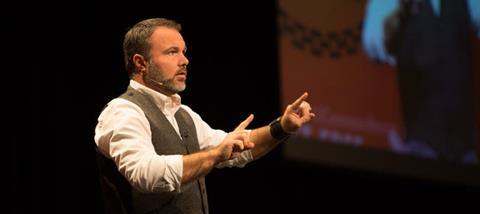
I once interviewed Mark Driscoll and his wife Grace. It was one of the most memorable interviews of my career for Premier Christianity magazine, as the megachurch pastor ended up turning the tables on me (you can listen to it here or read it here).
I asked him about some of his more controversial statements over the years, and he made further controversial statements about British preachers in response. I also challenged him about his view that women shouldn’t be church leaders (giving my wife as an example of a female minister). It was then that Driscoll turned interviewer himself and started to question me, in a slightly aggressive fashion, about my doctrinal soundness, leading to a debate on the nature of atonement, hell and whether female leaders attract men into churches.
I’m always happy to debate issues of doctrine and host a radio show that does precisely that (although I’m usually the neutral moderator rather than the subject). What stayed with me was the way Driscoll – who I imagine had been expecting more of a ‘softball’ interview – seemed eager to change the power dynamic in the interview. Fed up with being grilled, he took control.
Driscoll has a dominating personality and can sometimes come across as being obsessed with the issue of ‘authority’, both in the Church and in male and female relationships. In the 45 minutes I spent with him he demonstrated, in word and in action, that he likes to be in control. When he subsequently complained on his blog about the way I had conducted the interview he even suggested that my own agenda had been one of power and authority. We published our own view of how the interview went.
There has been plenty of bad press for Driscoll and Mars Hill Church recently. There have been allegations of plagiarism, the buying of the number-one spot on The New York Times bestseller list for Real Marriage, the uncovering of reportedly homophobic and misogynistic comments made years ago on a web forum, and being ejected from the Acts 29 Network, which he cofounded.
But the main reason Driscoll took a six-week leave of absence related to the internal power struggles and allegations of bullying that have led to multiple former members, elders and pastors publically airing their grievances against him. The investigation, which was launched by the church, concluded of Driscoll:
‘Pastor Mark has at times, been guilty of arrogance, responding to conflict with a quick temper and harsh speech, and leading the staff and elders in a domineering manner.
‘While we believe Mark needs to continue to address these areas in his life and leadership, we do not believe him to be disqualified from pastoral leadership.’
Driscoll resigned nevertheless, not wanting his role at the church ‘to be the source of anything that might detract from our church’s mission to lead people to a personal and growing relationship with Jesus Christ’.
I believe Driscoll has done the right thing in stepping down. His continued presence would have been a never-ending lightning rod for controversy. But how the church fares without his charismatic presence at its helm remains to be seen.
It was partly Driscoll’s bullish charisma on the church stage that made him so popular as a preacher. He was known for speaking bluntly and even shockingly at times. It wasn’t to everyone’s taste, but a legion of young Christian men appreciated his unvarnished, tell-it-like-it-is honesty. But the way that personality manifested itself towards his staff and co-leaders accounts for a large part of the background to his resignation this week.
This article is not meant to kick Driscoll while he’s down, nor do I claim to be an expert on the man, having spent the grand total of 45 minutes interviewing him on one occasion. If you are a Christian, please pray for the Driscoll family and Mars Hill Church. My hope is that whatever the future holds for Driscoll, he will learn to harness his evident gifts of communication with increasing grace and humility, however painful that character-shaping process has proven to be.
























